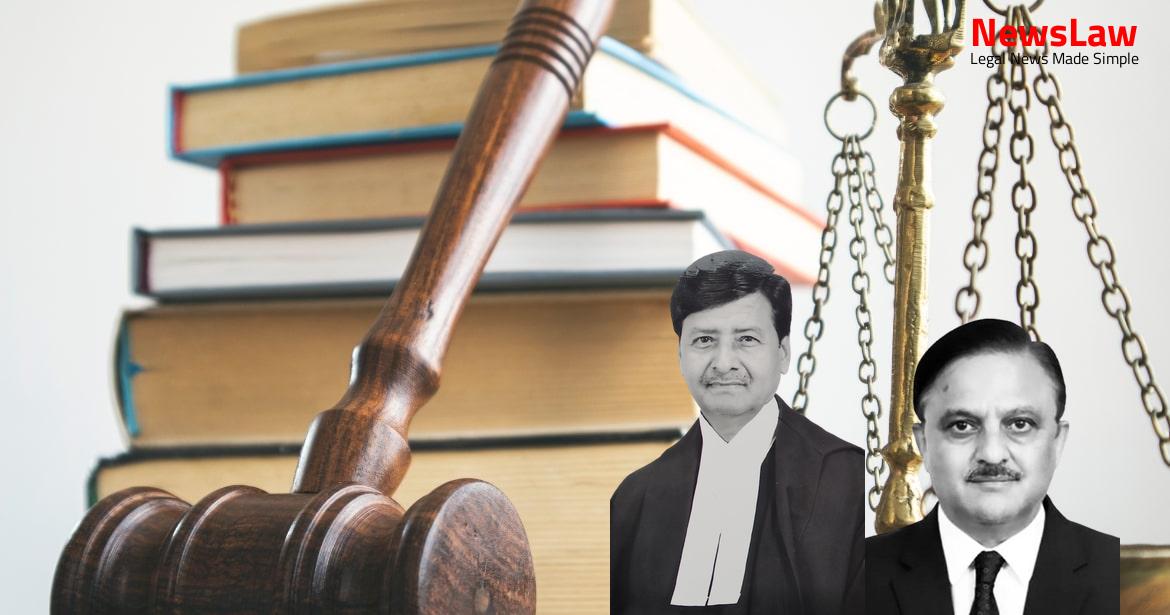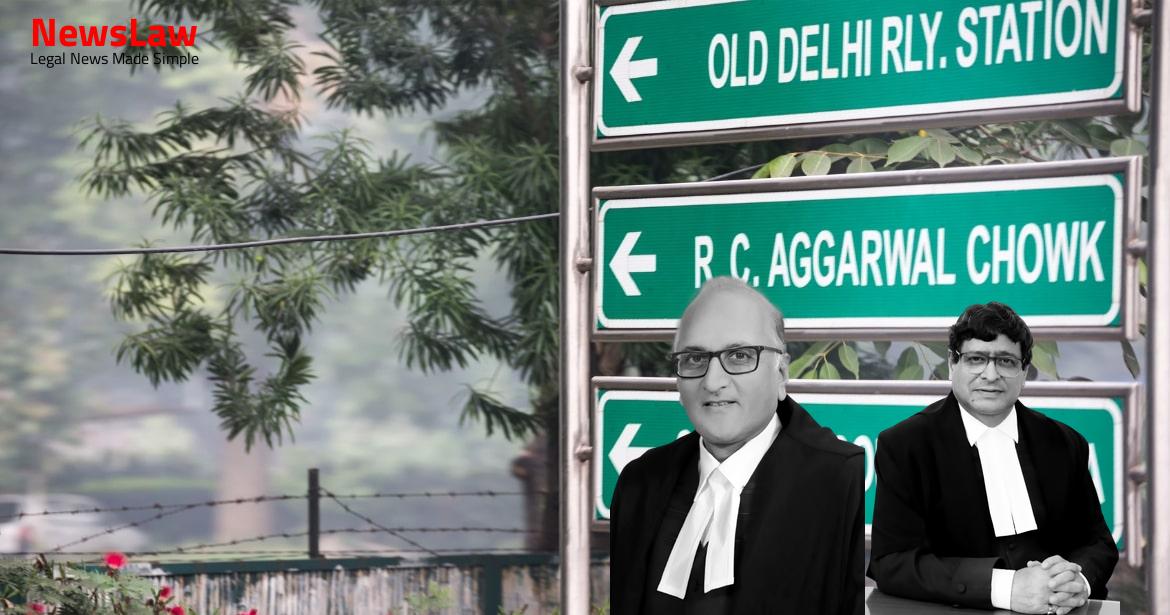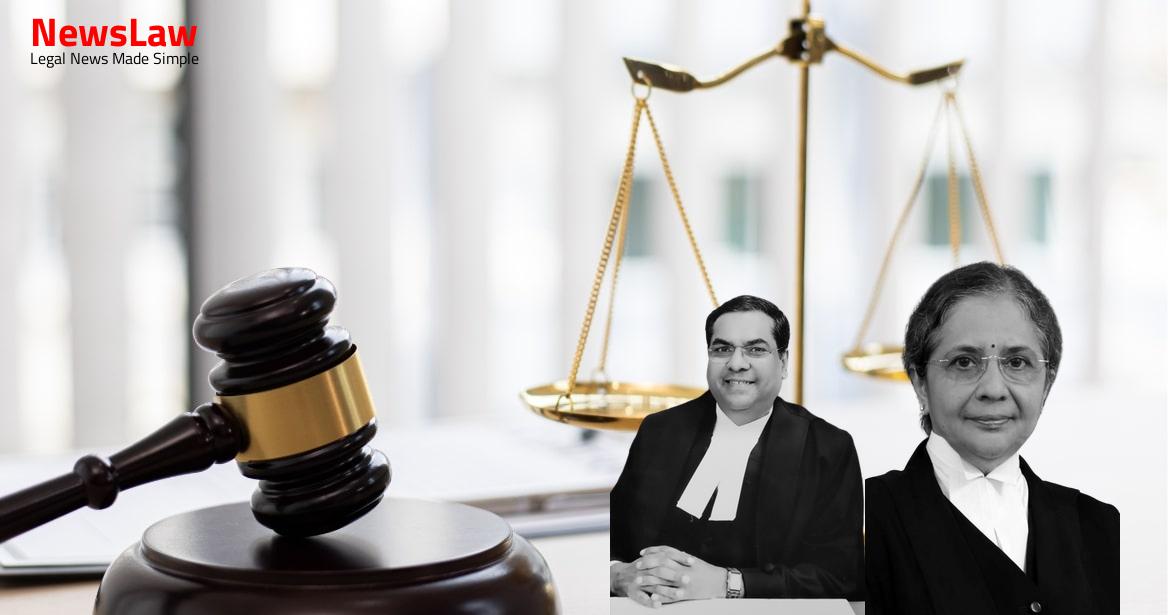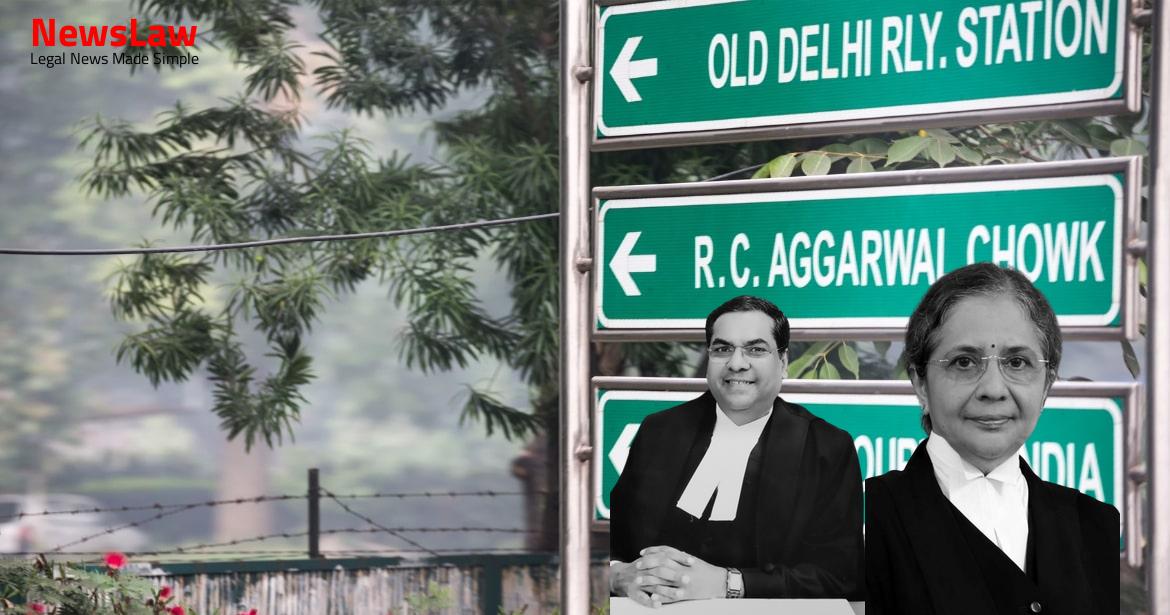Legal cases often involve complex considerations, especially when it comes to sentencing. This particular case delves into the court’s legal analysis regarding the impact of a post-conviction compromise on the imposed sentence. Despite the plea for leniency based on new developments, the court’s decision reflects a steadfast approach towards upholding justice and ensuring that the severity of the crime is duly recognized. Let’s dive into the nuances of this significant legal judgment.
Facts
- The injuries inflicted on the victim were severe and critical, requiring immediate medical attention.
- The medical certificate detailed the injuries, including amputations and incised wounds on various parts of the body.
- Initially, 12 accused were convicted for causing grievous hurt to the victim and sentenced to 7 years imprisonment.
- On appeal, four accused were found guilty, including the present appellant.
- The submission that reverting back to serving a sentence after 28 years would be unjustified was rejected by the High Court.
- The victim’s injuries were described by a witness, highlighting the severity and immediate need for medical intervention to prevent death.
- Injury numbers 1 and 4 were particularly dangerous to the victim’s life.
- The appellant was sentenced to rigorous imprisonment for 5 years under Section 326 IPC and to pay Rs. 2 lakhs as monetary compensation to the victim under Section 357 CrPC.
- The victim survived with prosthetic arm and leg after the brutal attack, leading to amputation of vital body parts.
- The victim has been crippled for life, pursuing daily chores with prosthetic limbs but has lost vital organs.
- The High Court of Bombay upheld the conviction and sentencing of the appellant for the offence.
- The incident occurred on 13 December 1993, involving multiple accused attacking the victim with lethal weapons resulting in severe injuries.
- The victim’s survival was attributed to immediate medical care and his strong will.
- The appellant surrendered after a considerable period and had already undergone 5 months of the sentence.
Also Read: Recovery of Misappropriated Temple Funds: Court’s Legal Analysis
Arguments
- The appellant’s counsel argued for compounding the sentence citing a compromise affidavit from the victim.
- The counsel highlighted the amicable settlement between parties, their close familial ties, and the request for compounding the offence.
- Reference was made to court judgments supporting such compromises in criminal cases.
- The complainant’s counsel supported the appellant’s plea, emphasizing cordial relations and a joint affidavit filed by the injured victim.
- The State’s counsel opposed the request, emphasizing the societal protection and deterrence goals of the criminal justice system.
- The State’s counsel argued that sentencing should reflect society’s conscience and be stern when necessary, opposing the alleged compromise obtained post the High Court’s judgment.
- Compromise obtained after 28 years of the incident raises concerns of coercion or inducement, undermining public confidence in the law and society.
- The trial Judge and High Court considered the nature of the incident and relevant factors while imposing sentence, which should not be interfered with solely based on the compromise obtained.
- The incident occurred on 13 December 1993, resulting in permanent disability for the victim due to a brutal attack with a lethal weapon.
- The offence under Section 326 IPC is non-compoundable as per Section 320 CrPC, highlighting the seriousness of the crime.
- The victim’s survival was credited to immediate medical treatment, as per the treating Doctor, indicating the severity of the injuries inflicted.
- The appellant was rightly held guilty and convicted for the offence under Section 326 IPC based on the facts and findings presented.
- The families of the petitioner and the deponent have developed close relations over time, with grudges fading away and friendship emerging.
- The petitioner’s advanced age, health condition, and family responsibilities are cited as reasons to avoid further imprisonment.
- The compromise affidavit filed by the victim acknowledged the incident’s long time frame, attributing it to a misunderstanding and the spur of the moment.
Also Read: Determining Seniority in Delayed Appointments: Legal Analysis
Analysis
- The court does not have specific guidelines for sentencing the accused after being found guilty.
- The court considers factors like proportionality, deterrence, and rehabilitation when exercising discretion in sentencing.
- The compromise in this case is not satisfactory as it appears to have been hastily obtained overnight after the conviction was confirmed by the High Court.
- The contents of the compromise lack substance and are stereotyped, lacking details about previous or current relations between the parties.
- Referring to a previous judgment, the Court emphasizes the need to consider both aggravating and mitigating factors in determining the appropriate sentence.
- The High Court’s decision to convict the appellant under Section 326 IPC was based on sufficient reasons, highlighting the brutality of the crime where the victim was permanently disabled.
- The severity of the crime, where the victim suffered life-altering injuries, necessitates a stern approach in delivering justice and punishing the wrongdoer.
- Compromise entered at a later stage, even after conviction, can be a factor in influencing the sentence.
- Compromise should not be the sole basis for determining the sentence; other aggravating and mitigating factors need to be considered.
- The court is not satisfied with the compromise obtained 28 years after the incident.
- The victim has suffered severely, being permanently disabled with amputated limbs since the incident in 1993.
- Considering the severity of the victim’s suffering, the court does not consider the compromise as a valid reason to interfere with the sentence imposed by the High Court.
Also Read: Legal Analysis in Assault and Homicide Case
Decision
- Pending applications disposed of
- Appeal dismissed
Case Title: BHAGWAN NARAYAN GAIKWAD Vs. THE STATE OF MAHARASHTRA (2021 INSC 503)
Case Number: Crl.A. No.-001039-001039 / 2021



